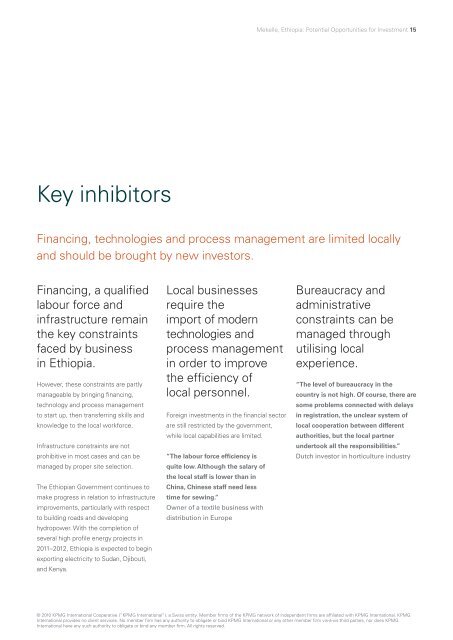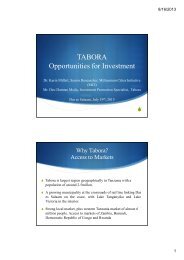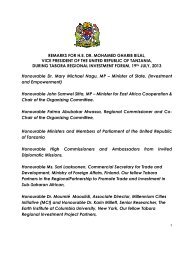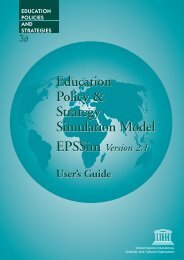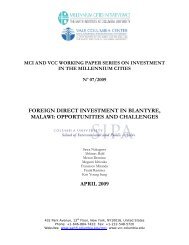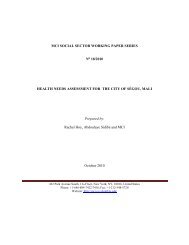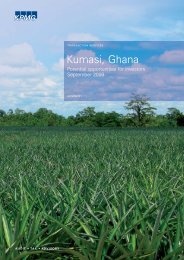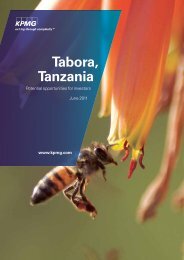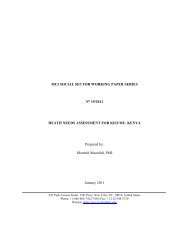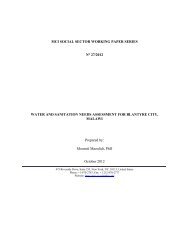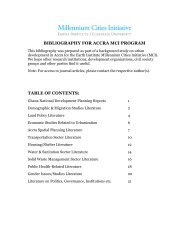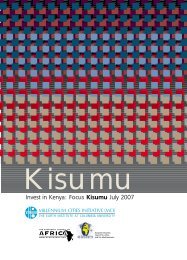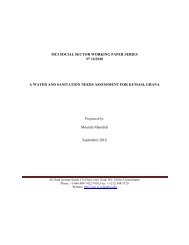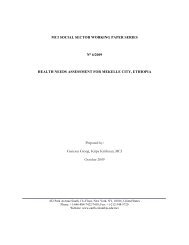Mekelle, Ethiopia - Millennium Cities Initiative - Columbia University
Mekelle, Ethiopia - Millennium Cities Initiative - Columbia University
Mekelle, Ethiopia - Millennium Cities Initiative - Columbia University
Create successful ePaper yourself
Turn your PDF publications into a flip-book with our unique Google optimized e-Paper software.
Key inhibitors<br />
<strong>Mekelle</strong>, <strong>Ethiopia</strong>: Potential Opportunities for Investment 15<br />
Financing, technologies and process management are limited locally<br />
and should be brought by new investors.<br />
Financing, a qualified<br />
labour force and<br />
infrastructure remain<br />
the key constraints<br />
faced by business<br />
in <strong>Ethiopia</strong>.<br />
However, these constraints are partly<br />
manageable by bringing financing,<br />
technology and process management<br />
to start up, then transferring skills and<br />
knowledge to the local workforce.<br />
Infrastructure constraints are not<br />
prohibitive in most cases and can be<br />
managed by proper site selection.<br />
The <strong>Ethiopia</strong>n Government continues to<br />
make progress in relation to infrastructure<br />
improvements, particularly with respect<br />
to building roads and developing<br />
hydropower. With the completion of<br />
several high profile energy projects in<br />
2011–2012, <strong>Ethiopia</strong> is expected to begin<br />
exporting electricity to Sudan, Djibouti,<br />
and Kenya.<br />
Local businesses<br />
require the<br />
import of modern<br />
technologies and<br />
process management<br />
in order to improve<br />
the efficiency of<br />
local personnel.<br />
Foreign investments in the financial sector<br />
are still restricted by the government,<br />
while local capabilities are limited.<br />
“The labour force efficiency is<br />
quite low. Although the salary of<br />
the local staff is lower than in<br />
China, Chinese staff need less<br />
time for sewing.”<br />
Owner of a textile business with<br />
distribution in Europe<br />
Bureaucracy and<br />
administrative<br />
constraints can be<br />
managed through<br />
utilising local<br />
experience.<br />
“The level of bureaucracy in the<br />
country is not high. Of course, there are<br />
some problems connected with delays<br />
in registration, the unclear system of<br />
local cooperation between different<br />
authorities, but the local partner<br />
undertook all the responsibilities.”<br />
Dutch investor in horticulture industry<br />
© 2010 KPMG International Cooperative (“KPMG International”), a Swiss entity. Member firms of the KPMG network of independent firms are affiliated with KPMG International. KPMG<br />
International provides no client services. No member firm has any authority to obligate or bind KPMG International or any other member firm vis-à-vis third parties, nor does KPMG<br />
International have any such authority to obligate or bind any member firm. All rights reserved.


